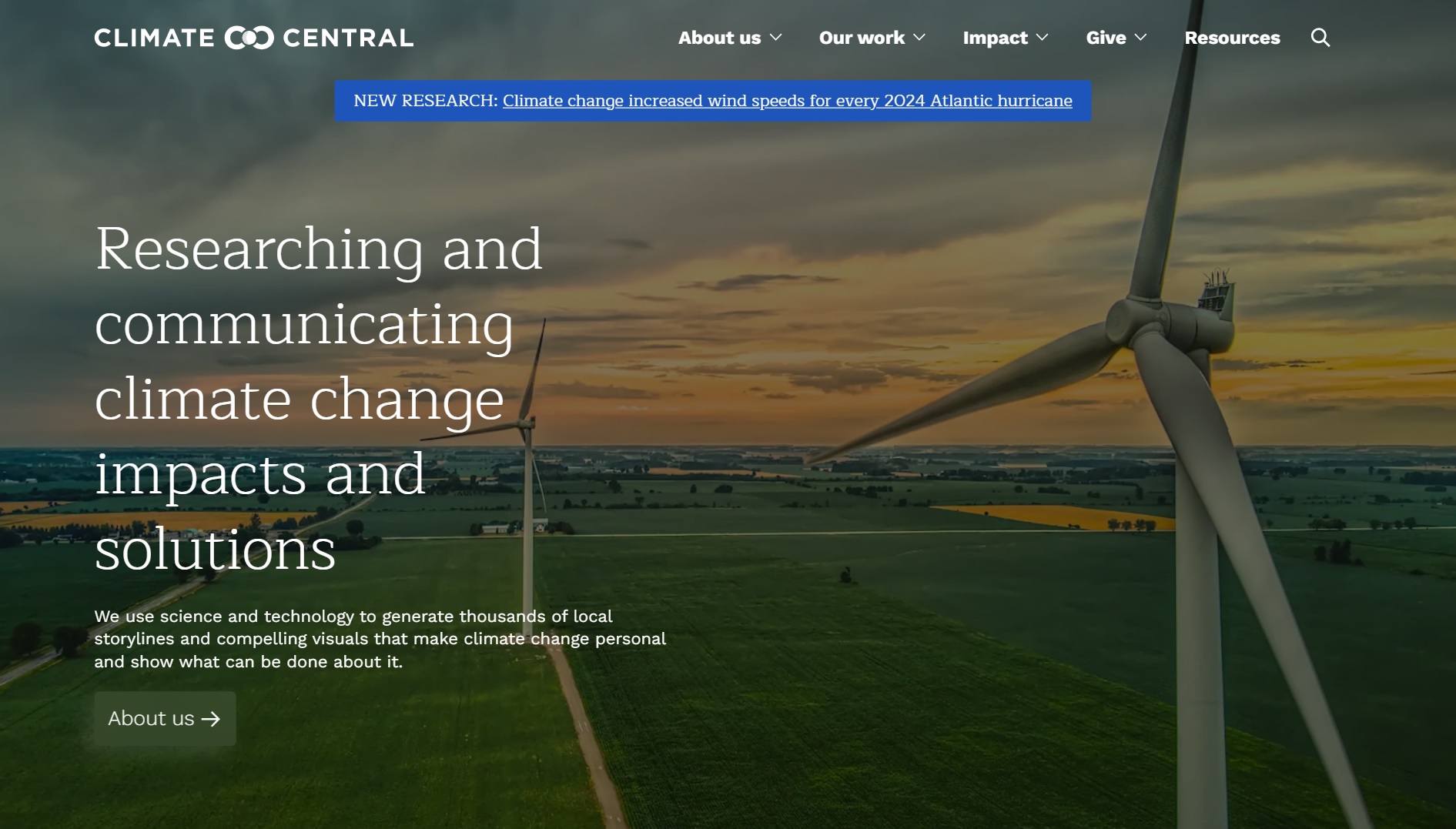
Writing projects sometimes start at odd places. I met John Upton in a coffee shop near the Port Authority Bus Terminal in New York City when he started me out guiding journalists to be better science writers.
Early in my process of transplanting myself to New Jersey from Alaska, more than five years ago, I networked to find John and his organization, Climate Central. I offered to teach science writing because I had done plenty of it.
Climate Central is a strange idea that works. Scientists and communicators study ways to help the public understand the threat and urgency of climate change, without taking sides or even advocating for particular policies. Their idealistic notion is that accurate information can make a difference.
A key part of the concept is to develop the science reporting skills of local journalists, including weathercasters but also beat reporters, while providing them with solid science that their audiences need. It works. Climate Central’s material reaches everywhere and has made big, documented changes in how key people do their jobs.
John’s Partnership Journalism program pairs local reporters and editors with national science journalists. In my assignments, the local reporters would find people and stories to tell and I would bring the science, helping reporters see connections and use scientific findings in their work.
These are fun and rewarding projects. At my career stage, it’s energizing to get back into daily journalism, where deadlines come fast and decisions have to be made on the spot. I treasure local reporters and editors’ role our society, knowing everyone in town and how their communities work.
John is a perfect partner for these journalists. Serious, direct, thoughtful, and focused on readers.
Scientists and journalists share key instincts, especially curiosity and dedication to empirical facts. They both follow a fundamental rule, in every science paper and a hard news story: every fact must be backed by evidence a reader can evaluate independently. That’s how you know you are reading science or news and not propaganda or something else.
But despite the similarities, popular science writing is best left to journalists. Scientists seek knowledge for its own sake and their colleagues’ praise. Journalists know that new knowledge alone doesn’t attract readers or listeners. In the real world, relevance and storytelling motivate us to engage.
What many journalists lack is confidence when writing about science. They probably avoided those classes in school and think of science as intimidating. A lot of people feel that way, too.
We need to get beyond that. Science is simply a way to understanding reality. Scientists often are desperate to explain their work. Science journalism is about listening and finding the story—which is what all reporters do.
This alliance should be easy, and it has been with most of the local journalists and scientists I’ve worked with, once we find a connection to readers’ lives. Thanks to John and Climate Central, I’ve done it all over the U.S., adding science to the hustle of daily reporting.
If you enjoy my newsletter, please share it.